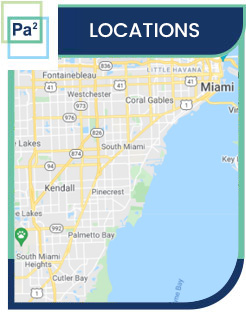Common Food Allergens Q&A
Allergic reactions to foods can be some of the more severe reactions, causing those with more serious food allergies to have to be incredibly vigilant and cautious to avoid exposure wherever possible. Learn more about the food allergens and how they impact you. Get trusted and expert care for a wide range of food allergies by board-certified allergist Dr. Carlos Piniella, MD at Piniella Asthma + Allergy. For more information, contact us today or schedule an online appointment. We have convenient locations to serve all our patients in Coral Gables, FL and Palmetto Bay, FL.


Table of Contents:
What are major food allergens?
What are the signs & symptoms of a food allergy?
How is a food allergy diagnosed?
Are food allergies can be life-threatening?
Food allergies are fairly common but can range significantly in the actual food to which a person has an allergic reaction and in the severity of the reaction. When a person has an allergic reaction to a food, it is because there is a protein that is present in the food that elicits a response from their immune system. The most common food allergens include:
• Dairy
• Eggs
• Fish
• Shellfish
• Peanuts
• Tree nuts
• Wheat
• Soy
Many other types of foods can cause an allergic reaction in people, but these are the most common and are known for causing more severe allergic reactions. With there being such a range in severity of reactions, many food manufacturers have to clearly label ingredients and it is common to have restrictions placed on being able to consume certain foods in some places, such as sending your children to school with food that contains peanuts.
An allergic reaction to food will likely be more severe than just an intolerance to a certain food, which will likely only cause bloating or tummy pain that subsides within a few hours. Food allergy symptoms can develop immediately after consuming the food or can take several days to fully develop, with the reaction itself lasting anywhere from several minutes to several days as well, with some reactions even taking multiple weeks to fully resolve. Common symptoms and indications of a food allergy include:
• Diarrhea
• Itching of the skin or the development of hives or a rash
• Dizziness or feeling lightheaded
• Coughing or wheezing, struggling to breathe, or breathing that is noisy
• Stomach pain
• Swelling of the eyes, lips, and the face
• Sneezing, congestion, or an itchy or runny nose
To accurately diagnose a food allergy, an allergy test will likely be required, involving either a skin-prick test or a blood test. The skin-prick test uses a small sharp medical tool to prick the skin where the oil or extract of an allergen has been applied to the skin, allowing for the allergen to enter the body to cause an allergic response if there is an allergy to that particular allergen. If there is an allergy, a small red bump will develop around 15 minutes after the prick. Several allergens will be tested for at the same time with the allergist keeping track of the tested allergens if there are multiple potential allergens for the particular patient. Blood tests used for food allergies can measure the presence of IgE antibodies (this is the antibody that triggers the symptoms that develop if there is an allergy to the consumed food), so if the patient has consumed and digested food to which they have an allergy, there will be an increased presence of IgE antibodies in their blood. The blood test is not 100% accurate as there is a chance of receiving a false positive, and it cannot provide the physician with information regarding the severity of the allergy.
While it is uncommon to have a life-threatening allergy, it is entirely possible and happens to many people. For those with very severe allergies, even a very small amount of the food allergen can cause a severe allergic reaction that can quickly become life-threatening. People with severe food allergies have to be much more cautious to ensure that they avoid exposure and reactions, not being able to risk consuming a trace amount. Common life-threatening allergy symptoms include struggling to breathe or breathing that is noisy, as well as swelling of the throat or tongue. Any early indications of a serious allergic reaction should be taken immediately to an emergency clinic or emergency medical services should be contacted as quickly as possible. It is common for those with severe food allergies to have to carry an Epi-pen around with them everywhere in case they become exposed to their allergen.
Food allergy treatments are available at Piniella Asthma + Allergy. We serve patients from Coral Gables FL, Palmetto Bay FL, Westchester FL, Brownsville FL, Kendall FL, Pinecrest FL, Richmond West FL, Goulds FL, and the surrounding areas!

Additional Services You May Need
▸ Asthma
▸ Allergy Testing
▸ Food Allergies
▸ Immunotherapy
▸ Patch Testing
▸ Allergy Treatment
▸ Pediatric Asthma Specialist
▸ Pediatric Allergist
▸ Insect Bite Allergy
▸ Drug Allergy
▸ Seasonal Allergies
▸ Skin Allergy

Additional Services You May Need
▸ Asthma
▸ Allergy Testing
▸ Food Allergies
▸ Immunotherapy
▸ Patch Testing
▸ Allergy Treatment
▸ Pediatric Asthma Specialist
▸ Pediatric Allergist
▸ Insect Bite Allergy
▸ Drug Allergy
▸ Seasonal Allergies
▸ Skin Allergy


